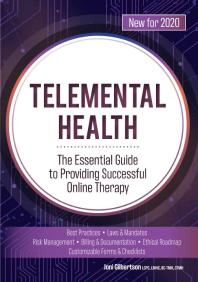

Interlibrary Loan services allow current Fredonia faculty, staff, and students to request books, articles, book chapters, and other materials that are not owned by Reed Library.
For more information, visit our guide on ILL.
ReedSearch is often the best place to start your search for books. Below you will find a small selection of items that exist in our physical and digital collections, as well as links to open access collections.
 Pocket Guide to LGBTQ Mental Health
by
The Pocket Guide to LGBTQ Mental Health is a down-to-earth, informative, and affirming manual for mental health clinicians working with patients of diverse gender and sexual identities. In recent years, people have begun to grapple with these issues in a healthier, more public way, and mental health practitioners must be prepared to meet their patients with the knowledge, understanding, and grasp of the context in which patients live their lives.
Pocket Guide to LGBTQ Mental Health
by
The Pocket Guide to LGBTQ Mental Health is a down-to-earth, informative, and affirming manual for mental health clinicians working with patients of diverse gender and sexual identities. In recent years, people have begun to grapple with these issues in a healthier, more public way, and mental health practitioners must be prepared to meet their patients with the knowledge, understanding, and grasp of the context in which patients live their lives.
 Telemental Health : The Essential Guide to Providing Successful Online Therapy
by
Virtual care is the new normal. Are you prepared? In this comprehensive guide, therapist and certified telemental health trainer Joni Gilbertson discusses the entire virtual treatment process, from intake to termination (and beyond). Drawing from her own successful online practice, in addition to training thousands of professionals on telemental health, Gilbertson's straightforward, conversation style allows clinicians to see themselves in her case examples and clinical decision making. Designed with both the seasoned and newly minted therapist in mind, this guidebook provides a map to the essentials of a successful online practice, including: Platforms that are both HIPAA-compliant and user-friendly An ethical roadmap for navigating dilemmas common to virtual care Up-to-date information on virtual care best practices and laws Must-have risk management safeguards for your license, your practice, and your client Customizable, legally sound forms, including informed consent, release of information, emergency plans, and more.
Telemental Health : The Essential Guide to Providing Successful Online Therapy
by
Virtual care is the new normal. Are you prepared? In this comprehensive guide, therapist and certified telemental health trainer Joni Gilbertson discusses the entire virtual treatment process, from intake to termination (and beyond). Drawing from her own successful online practice, in addition to training thousands of professionals on telemental health, Gilbertson's straightforward, conversation style allows clinicians to see themselves in her case examples and clinical decision making. Designed with both the seasoned and newly minted therapist in mind, this guidebook provides a map to the essentials of a successful online practice, including: Platforms that are both HIPAA-compliant and user-friendly An ethical roadmap for navigating dilemmas common to virtual care Up-to-date information on virtual care best practices and laws Must-have risk management safeguards for your license, your practice, and your client Customizable, legally sound forms, including informed consent, release of information, emergency plans, and more.
Daniel A. Reed Library • The State University of New York at Fredonia • 280 Central Ave., Fredonia, NY 14063 • 716-673-3184 • reedref@fredonia.edu
FB: @ReedLibraryInsta: @SUNYFredLibrary X: @SUNYFredLibrary
Accessibility Statement: Reed Library is dedicated to making information accessible for everyone. If you notice an accessibility issue within this guide, please contact Katelynn Telford
 Except where otherwise noted, this guide is licensed under a Creative Commons Attribution-ShareAlike 4.0 International License.
Except where otherwise noted, this guide is licensed under a Creative Commons Attribution-ShareAlike 4.0 International License.